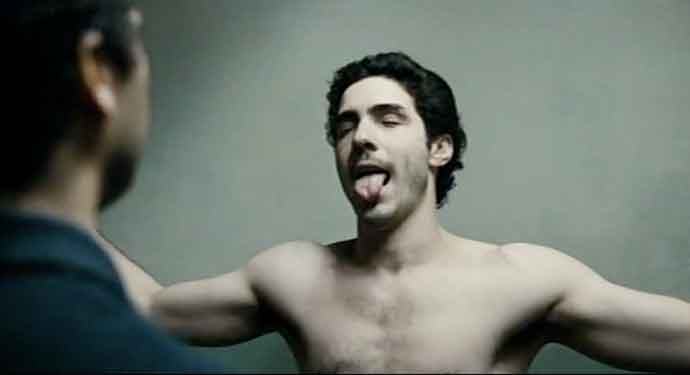I always get the feeling that Documentaries are overlooked as an artform. I often feel that people think that anyone can film real life events and that artistry is left out of the equation. Thank goodness then for Wim Wenders who I have now seen two documentaries by, and both have been shot so beautifully and with a very distinct style that I would like to see anyone argue that they lack any merit. I often find that the best criteria to mark a documentary on is whether it manages to hold your attention when talking about a subject you have no interest in. It's how I knew that Senna was a wonderful film. However this isn't something I can use against this film as I have both an interest in music, as well as Cuba as a country and as a culture. However there are other things to judge this film on.
Firstly Wenders films most of his interviews outdoors, some of them casually walking around the streets of Cuba, and in other instances the interview acts as a voiceover as we observe the narrator exploring the area they are. What I drew from this, correctly or not, was an inherent link between the music and Cuban life. It felt almost as if Wenders were trying to indicate that their music and their life were connected in ways beyond the conscious mind. That Cuba was as much a part of the band as each individual member. Adding to this, the film concentrated so heavily on the music, with little time spent discussing their private lives, or more tellingly, less time spent discussing any of the political or cultural changes which resulted in the closure of the Beuna Vista Social Club as a venue, or how it affected their lives. This is not a sad film about turbulent lives, more a celebration of all that is wonderful about them and their music.
Nobody comes across badly in this film. Each member is an absolute joy and so full of life. With stories about how they got started in music, and their experiences with the project are both moving and full of joy. Ry Cooder comes across as a man with a genuine passion for music and indeed the music of these Cubans rather that someone trying to make a quick buck exploiting another culture, and Cuba itself comes across as a forgotten land. Cuba is an odd place, it feels like a time capsule to another time, and is all the better for it (in a strictly visual way) giving the whole film a nostalgic feel for a project that at the time was very much current.
Overall this film provides an interesting insight into musicians we may not have known much about otherwise, it reminds us that you're never too old to be a great showman and make your mark, and it proves that documentaries can provide as much artistry and integrity as a feature film. My only real criticism would be the final 15 minutes which are spent following the musicians around New York. I guess this is included to provide a backdrop to the modern audience that the band had followed, but it played far too much like a love letter to New York over Cuba and made me feel mildly uncomfortable. However the rest of the film was a joy which more than made up for it.















